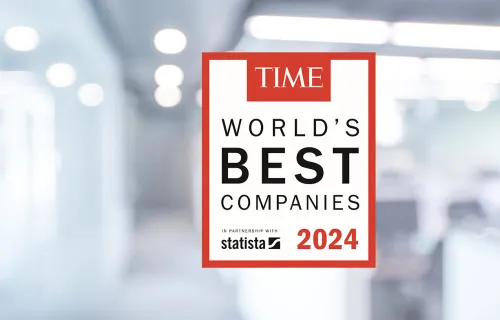What is it that we associate with someone that makes them a great manager?
This is the question I asked myself years ago when I first started my management journey. I looked back over my career and thought about what I had seen in managers that made them true leaders in my eyes.
What I discovered is this: great managers understand and value the unique abilities, and even eccentricities, of their employees and they learn how to best integrate them into a well-defined plan with a specific desired outcome.
Yes, initially it sounds simple. But this takes time and continuous effort on the manager’s part to understand their team so fully that a good working relationship is established, and trust is built.
Three important traits for managers
There are three essential traits that all managers must possess.
First, the ability to develop their employees’ careers through identifying opportunities and encouraging individual growth.
Secondly, managers must be assertive and communicate openly and honestly on a regular basis – including when it comes to giving hard but necessary direct feedback.
Thirdly, managers must recognise and show their appreciation for employees on a regular basis. There is nothing more powerful than praise and recognition for a job well done.
At the very least, this is what is expected of managers across all industries and experiences.
The secret to great management
Looking back at some of the best managers I’ve had the pleasure of working with during my career, I can now see how each of them first identified my strengths and weaknesses and then pushed me beyond my boundaries to achieve things that I did not know I was capable of. By communicating regularly, asking about my goals and aspirations and getting to know me as a person, these managers were able to encourage and support my contributions to the organisation.
I always delivered what was expected of me in the roles that I held. However, one of my past managers knew I could achieve more than what was expected in the role. He would assign personal responsibilities and encourage me to succeed and do what I do well. He gave me the opportunity to make decisions that had potential project and financial implications and taught me not to second guess myself. My confidence exponentially increased and I felt empowered to do more knowing that my “great” manager was always there for me in the shadows if I needed him.
I took note of these traits that have impacted my own life and purposefully incorporated them into my own management style. Now, my approach as a manager has been to take my staff’s individual talents in order to optimise the team’s overall performance – but I am only successful if I first identify the differences in each of my employees and then continuously challenge them to excel in their own ways. And all of this must be done without micromanaging!
Many at the management level seem to forget that their primary goal should focus on helping a team to develop, but instead focus only on their own development and achievements. Great managers quickly realise that their own individual goals can only be met once their team has been successful.
Measuring management success
But how do I know if my management approach is working?
First, I measure my approach’s success on the interactions and feedback I receive from my team. Over time, I have found that my employees are happier and more productive as it empowered them to achieve more in the workplace.
It also enabled my team to be comfortable to discuss issues directly with me, as opposed to hiding their feelings about things. In turn, I actively listen to each situation and work with them to resolve things fully. By moving away from micromanagement, I am enabling my team to do their roles independent of hand-holding by management.
In the end, managers require total support from their company to be successful at managing their teams. Companies must listen and work with their leadership team for an effective top-down approach that ensures the company’s commitment is known amongst all employees, and a culture of respect and growth is born.
Since working with CGI as a manager, I have seen and experienced this full commitment from the organisation, allowing both myself and my team to grow in our careers. CGI has created a “Key Achievers Program”, which focuses on nurturing the next generation of CGI managers and leaders for real career development and advancement opportunities. This program was created as a tangible way to encourage employees with high potential by acknowledging, developing and rewarding those who are actively engaged in the organisation.
CGI has continued to be recognised as an organisation who supports its management team and employees alike, providing a great amount of development and growth opportunities. Visit the CGI careers page for more information about current openings.




